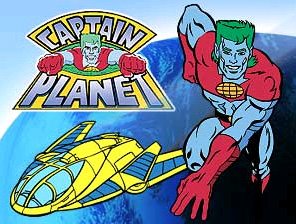
November 21, 2006 7:00 AM
http://www.nationalreview.com
And POTUS, too, if he has his way.
By Iain Murray
The DVD version of Al Gore’s An Inconvenient Truth is released this week. In addition to the movie, the DVD will feature a new 30-minute interview with the former vice president updating his argument. It is unlikely that he will use the segment to admit to any of the inconvenient truths I or my colleagues have pointed out, but he has bigger fish to fry: his movie has been nominated for an Academy Award. His latest intervention in global politics — a column in the British newspaper the Sunday Telegraph, objecting to a pair of articles downplaying the threat of global warming from Mrs. Thatcher’s old adviser Lord Monckton — suggests that this is a man on a mission; his likely victory speech in the Kodak Theater next February 25 could be the launch of something more.
In his article, Gore is doing again what he does best, exaggerating the arguments in favor of action on global warming while disparaging and misrepresenting the arguments against it. He has had a lot of practice at this, having repeated the same misleading points over 1,000 times in lectures all over the world. So full of holes, however, is his argument, that it is difficult to know where to begin.
We might start with the nature of scientific peer review, which Gore asserts is there to keep out ideas scientists disagree with. We should be thankful this is not the case; otherwise prevailing scientific theories would never be challenged. Peer review is actually there to elicit criticism, not suppress it. Editors ask their reviewers whether the article is worth publishing, not whether it is right. Sadly, in the case of climate science, peer review seems to be working exactly as Al Gore describes and not as the scientific model would suggest. Leading scientific journals routinely turn down articles that challenge the alarmist stance, even when they come from researchers concerned about global warming.
Gore is especially angry that Lord Monckton suggests that the Earth might not be that sensitive to the presence of greenhouse gases. Gore asserts that climate sensitivity, which represents how much temperature increase — all other things being equal — we can expect from a doubling of carbon dioxide in the atmosphere, is in the order of 3 degrees C. The Intergovernmental Panel on Climate Change admits that there is a wide amount of uncertainty in their models as to how much temperature change we can expect from a doubling of CO2 — from 1.5 to 4.5 degrees C.
Yet when Robert Douglass and Robert Knox of the University of Rochester examined the real world effects of the eruption of Mount Pinatubo, they found a climate sensitivity of only 0.6 degrees C — well below the 3 degrees Gore claims “the real world evidence” shows.
Gore also dismisses criticism of the “hockey stick” graph of historical temperatures, saying that the National Academies of Science had validated it. This is quite blatant spin. The National Academies’ report most assuredly did not state that “the late 20th-century warming in the Northern Hemisphere was unprecedented during at least the past 1,000 years and probably for much longer than that.” It found that current temperatures were the warmest in 400 years (which no one disputed); that the claim that temperatures were the warmest in a millennium was merely “plausible”; and that we could place very little confidence in reconstructions of temperature records before that. The report also upheld every methodological complaint against the shoddy science that produced the “hockey stick” in the first place. The “hockey stick” is most assuredly broken.
Gore also seriously misrepresents the peer-reviewed literature (ironically enough) on the relationship between disasters and climate change. Roger Pielke Jr. of the University of Colorado characterized Gore’s approach here as “deciding to uphold scientific standards only when politically convenient” and contributory to a “pathological politicization” of science. It is the ultimate irony that, when Al Gore complains about people misrepresenting the science, given his massive audience he is probably guilty of more far-reaching misrepresentation than anyone else.
As for the economics, it is no surprise that Gore lauds the Stern Review, which follows his approach in taking a worst-case scenario and exaggerating it to produce an estimate of the cost of global warming and then comparing that figure against a cost of mitigation that is well below the accepted cost estimates of such policies.
Gore also quotes Margaret Thatcher, just as he did Winston Churchill in his movie. In the chapter on global warming in her last book, Statecraft, Mrs. Thatcher warned against “the usual suspects on the left [who] have been exaggerating dangers and simplifying solutions in order to press their agenda of anti-capitalism.” Al Gore’s article fits that admonition exactly.
The former vice president has invested a lot of time and effort into making this not only his signature issue, but making it a moral, not a technical issue. He has been quite explicit in comparing the issue to the war on terror as an issue for our time. In his Telegraph article he actually concludes by saying, “At stake is nothing less than the survival of human civilisation and the habitability of the earth for our species.” Think about the implications of that for a moment. Not only is this breath-taking hyperbole, it sets Gore himself up as nothing less than the Savior of the entire Earth.
Such arrogance is surely egregious, but it also raises a question. What opportunity is there coming up for Al Gore to put himself in a position to change the course of history? Perhaps future historians will mark the opening of Al Gore’s 2008 presidential bid as Oscar night, February 25, 2007.
—Iain Murray is a senior fellow at the Competitive Enterprise Institute.
No comments:
Post a Comment